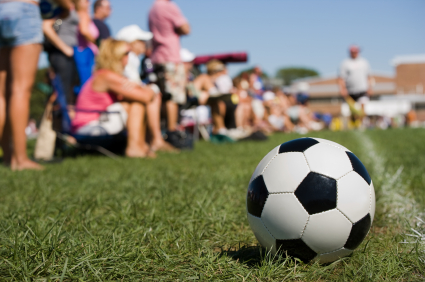
Sep 23, 2016 • 3 min read
Do You Know What to Do if Your Young Athlete Gets a Concussion?
It used to be that concussions were something you only had to worry about if you were a football player or an elite athlete. But in December, reports indicated that concussions have become an epidemic for kids in Canada.
 And it’s not just Canadian kids sustaining these injuries–concussions happen pretty much everywhere.
And it’s not just Canadian kids sustaining these injuries–concussions happen pretty much everywhere.
Dr. Lisa Fischer, who works at the Fowler Kennedy Sports Medicine Clinic, where they saw over 2,000 head injuries in the last year, was quoted as saying, “There’s been a lot of attention paid to elite athletes, but the real problem and the real focus needs to be on youth. These kids are getting hurt. And they don’t understand concussion. They don’t act on concussion, or they’re ignoring concussion.”
Rowan Stringer, a high-school rugby captain, tragically lost her life because nobody yet understood the full impact of head injuries. But thanks to Rowan’s Law–a new regulation that will increase awareness about how to prevent and treat concussions–parents, coaches, teachers and anyone working with kids will be more equipped to react properly when faced with a child who has a possible concussion.
 If you suspect a young athlete might have a concussion, make sure they get plenty of rest. That could mean taking a few days off from school, and it certainly means avoiding sports participation until the symptoms go away. But before young athletes return to the field of play, make sure to get a proper diagnosis from a doctor. Even when kids seem like they’re back to normal, it might still be too soon to send them back onto the field.
If you suspect a young athlete might have a concussion, make sure they get plenty of rest. That could mean taking a few days off from school, and it certainly means avoiding sports participation until the symptoms go away. But before young athletes return to the field of play, make sure to get a proper diagnosis from a doctor. Even when kids seem like they’re back to normal, it might still be too soon to send them back onto the field.
No matter what, it’s best not to rush back to sports after a concussion. This infographic by Parachute Canada includes, among other things, when to rest after an injury, when it’s permissible to begin aerobic activity and when kids truly are ready to get back on the field and play.
This is information we can’t afford not to know. Even if your young athlete doesn’t play sports, a simple fall from the monkey bars can result in a concussion. Get to know the signs of what to look for. When in doubt, seek medical attention after any injury to the head.
Lori Fireman is a contributor to Active for Life, a nonprofit organization committed to helping parents raise happy, healthy, physically literate kids. For more articles like this one, please visit ActiveforLife.com.
